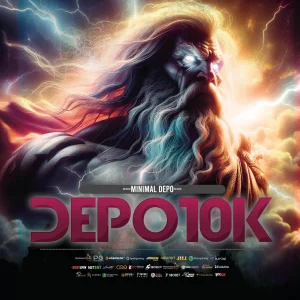Gaming, once relegated to the confines of arcades and clunky consoles, has transcended its humble beginnings to become a global cultural phenomenon. From qris slot the early days of Pong to the immersive worlds of virtual reality, gaming has undergone a remarkable evolution, shaped by technological advancements, innovative game design, and an ever-growing community of players. 
The Birth of an Industry
The history of gaming can be traced back to the 1950s and 60s, with the advent of early computer games like “Spacewar!” and “Noughts and Crosses.” However, it was the release of Atari’s “Pong” in 1972 that marked the beginning of the modern gaming era. This simple yet addictive game, featuring two-dimensional graphics and basic controls, captured the imagination of players worldwide and laid the groundwork for the gaming industry as we know it today.
The Rise of Consoles and Personal Computers
Throughout the 1980s and 90s, gaming experienced rapid growth and innovation with the introduction of home consoles such as the Nintendo Entertainment System (NES), Sega Genesis, and later, the Sony PlayStation. These consoles brought gaming into the living rooms of millions of households, offering an ever-expanding library of games and captivating experiences.
Meanwhile, the rise of personal computers opened up new possibilities for gaming, with titles like “Doom,” “Quake,” and “SimCity” pushing the boundaries of graphics and gameplay. The emergence of online multiplayer gaming further transformed the industry, allowing players to connect and compete with others around the world in real-time.
The Era of 3D Graphics and Immersive Experiences
The late 1990s and early 2000s saw a leap forward in gaming technology with the widespread adoption of 3D graphics and immersive gameplay experiences. Titles like “Super Mario 64,” “The Legend of Zelda: Ocarina of Time,” and “Final Fantasy VII” showcased the potential of 3D worlds to transport players to new and fantastical realms.
This era also saw the rise of gaming franchises that would become household names, from “Halo” and “Grand Theft Auto” to “World of Warcraft” and “The Sims.” These games not only pushed the technical limits of gaming hardware but also demonstrated the power of storytelling and character development in video games.
The Emergence of Mobile Gaming and Indie Developers
The advent of smartphones and tablets in the late 2000s revolutionized gaming once again, bringing casual and accessible gaming experiences to a broader audience. Titles like “Angry Birds,” “Candy Crush Saga,” and “Pokémon Go” became global sensations, demonstrating the potential of mobile platforms for gaming.
At the same time, indie developers emerged as a creative force within the industry, leveraging digital distribution platforms like Steam and itch.io to release innovative and experimental games. From the atmospheric puzzles of “Limbo” to the emotional narrative of “Undertale,” indie games offered a diverse range of experiences that pushed the boundaries of traditional gaming.
The Future of Gaming: Virtual Reality and Beyond
As we look to the future, gaming continues to evolve with the emergence of virtual reality (VR) and augmented reality (AR) technologies. VR headsets like the Oculus Rift and PlayStation VR offer immersive gaming experiences that transport players to fully realized virtual worlds, while AR games like “Pokémon Go” blend the virtual and physical realms in new and exciting ways.
With advancements in artificial intelligence, cloud gaming, and interactive storytelling, the possibilities for gaming are limitless. From epic multiplayer battles to intimate narrative experiences, gaming continues to captivate and inspire players of all ages around the world.
In conclusion, gaming has come a long way since the days of Pong, evolving from simple pixels to immersive virtual realities. As technology continues to advance and creative minds push the boundaries of what is possible, one thing is certain: the future of gaming is bound to be an exciting and exhilarating journey for players and creators alike.